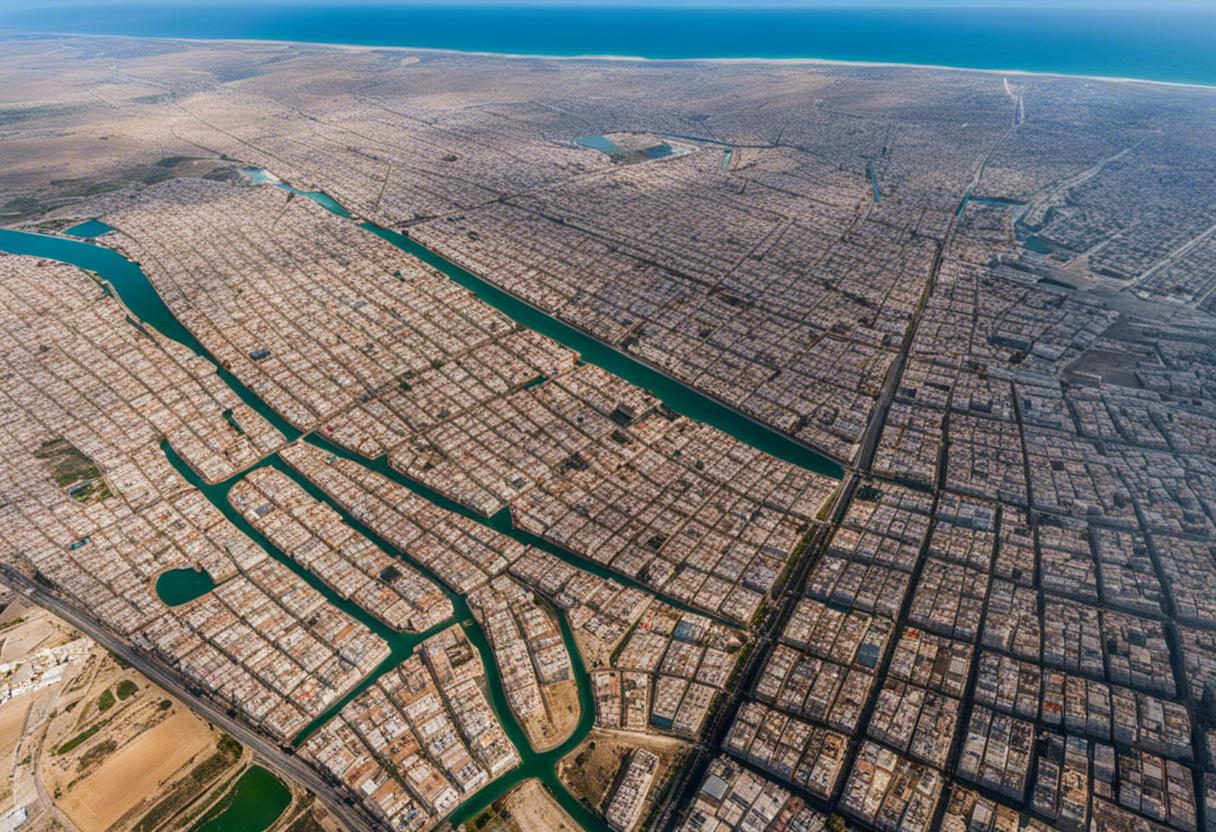The taking control of the Palestinian terminal at the Rafah crossing by the Israeli military, which borders Egypt and Gaza, had significantly concerned aid organisations delivering essential assistance to the 2.2 million Palestinians present in the strip. A report from the UN and different global aid organisations indicates that the closure of the Rafah and the Israeli-dominated Kerem Shalom entryways into southern Gaza have practically cut off the region from international aid, with minimal resources accessible inside the enclave.
Despite persistent appeals from the United States and other governmental entities as well as international organizations, the Israeli military moved forward with seizing control of the Rafah crossing. The Israelis justify their actions as targeting the last Hamas stronghold, yet Rafah shelters more than one million displaced Palestinian civilians. Many residents of Rafah are struggling to locate safe refuge within the small strip, which has been under continuous assault since Hamas insurgents crossed into Israel on the 7th of October. The attack resulted in approximately 1,200 deaths and captured around 250 people, based on figures provided by Israeli officials.
Sam Rose, the Director of planning for the UN Palestinian refugee agency (Unrwa), informed Al-Jazeera that this closure is wreaking havoc on all of Gaza’s inhabitants. According to Rose, since the closure of Rafah in October, it served as the primary ingress for goods into Gaza. He further explained that fuel is only imported through Rafah and the Israeli Kerem Shalom route. The lack of fuel will cripple aid distribution and impact desalination plants and electricity supplies. He emphasised the severity of the situation by stating that there were enough fuel stocks for half a day of aid activities only.
The spokesperson for the World Health Organisation, Margaret Harris, voiced her concerns stating that considering the already desperate living conditions and failing health system, any military operation within Rafah will massively escalate the humanitarian crisis, pushing a delicate aid mechanism to its limits. She highlighted that Israel’s request for 100,000 Palestinians to vacate eastern Rafah will intensify overcrowding at Israeli designated areas, reducing access to essential needs such as food, water, health and sanitation services, leading to disease outbreaks, escalating hunger and loss of lives.
Unicef, the United Nations’ child welfare agency, has voiced grave concerns about an impending Israeli siege and land incursion in Rafah. It warns that such actions could spell catastrophic repercussions for the 600,000 children among the 1.4 million inhabitants seeking refuge in there. The UN has documented the deaths of 34,488 Palestinians due to the ongoing conflict until April 29th; this includes 14,500 children and 9,500 women.
Catherine Russell, Unicef’s director, articulated that Rafah has effectively become a safe haven for countless children in Gaza with nowhere else to turn to. She cautioned that intense military manoeuvres could endanger the children further, not just from violence, but also resulting from the ensuing pandemonium and panic. This, she warned, comes at a time when their physical and psychological resilience is already compromised.
Jan Egeland, the director of the Norwegian Refugee Council, has reproached Israel’s allies for their passivity. He claimed they are not just refraining from restraining Israel’s assaults, but are also doing nothing to deter Israel from launching what he described as an indiscreet military onslaught in the densely populated Rafah region. He underlined their onus to uphold the intrinsic principles of international humanitarian law, blaming them for their clear failure to do so.
Extra details as reported by Reuters.

